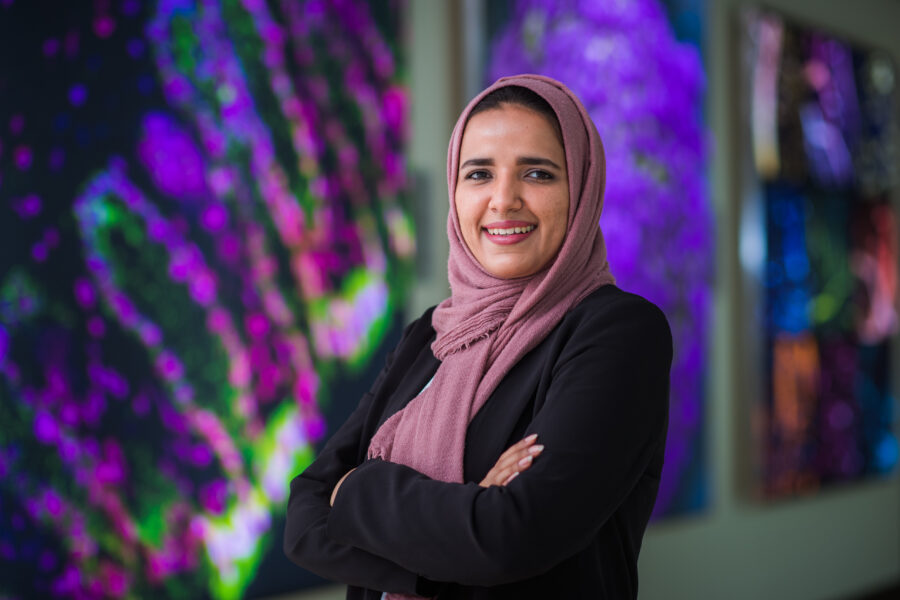Dr. Seba Nadeef

Biography:
Dr. Seba Nadeef completed her M.S. degree in biological science from King Abdullah University of Science and Technology (KAUST) in 2014. During her master's, she spent some time at the Children's Hospital at George Washington University in Washington, DC to conduct more research about Duchenne Muscular dystrophy diseases in Children. She finished at the top of her class, and she was granted a gifted Ph.D. Scholarship from KAUST to help further her studies in the school of Medicine at University of California, Irvine. During her Ph.D. in the Orlando’s lab (Department of Environmental Biology at KAUST) and in the Sassone-Corsi lab (Center of Metabolism at Irvine), Dr. Al-Nadeef was involved in several multidisciplinary projects that were published in high impact journals. Her Ph.D. research focused on discovering a novel role of Polycomb protein, known as cancer markers, in muscle metabolic and circadian rhythm regulation. Her findings are a cutting-edge topic in the field of Epigenetics, namely the mechanistic relationship between natural daily light-dark circadian rhythms, gene regulation, and cell plasticity in response to metabolic stress and disorder such as Obesity. Beside her interest in research, Dr.AL- Nadeef is interested in transferring research to technologies and during her Ph.D. she participated in STEM challenges and Entrepreneurship courses to support the growth of pharmaceutical knowledge in Saudi Arabia based on academic research. After earning her Ph.D. in December 2019, she joined the Robert Langer lab at MIT, where she is a post-doctorate fellow supported by the MIT-KACST Ibn Khaldun Fellowship.
MIT Fellowship Research Abstract:
Dr. Nadeef is working on two projects related to vaccine stability and protective memory responses after parenteral immunization.
The first project focuses on developing intradermal delivery of specific nano vaccines and addressing issues related to long-term vaccine stability.
The second project focuses on developing Mucosal Vaccine Consortium (MVC), the project is supported from the Bill & Melinda Gates Foundation to develop nanocarrier-based vaccine approaches.
Additionally, she is using advanced techniques such as RNA-seq to study the global immune response after using these developed nano-vaccines.
Professional Affiliations:
- Member of Women to Impact (WTI) KAUST
- Associate member of the E-learning Petroleum and Engineering Society
- King Abdulla University of Science and Technology (KAUST)
- University of California, Irvine
Fellowship Sponsored By:
KACST